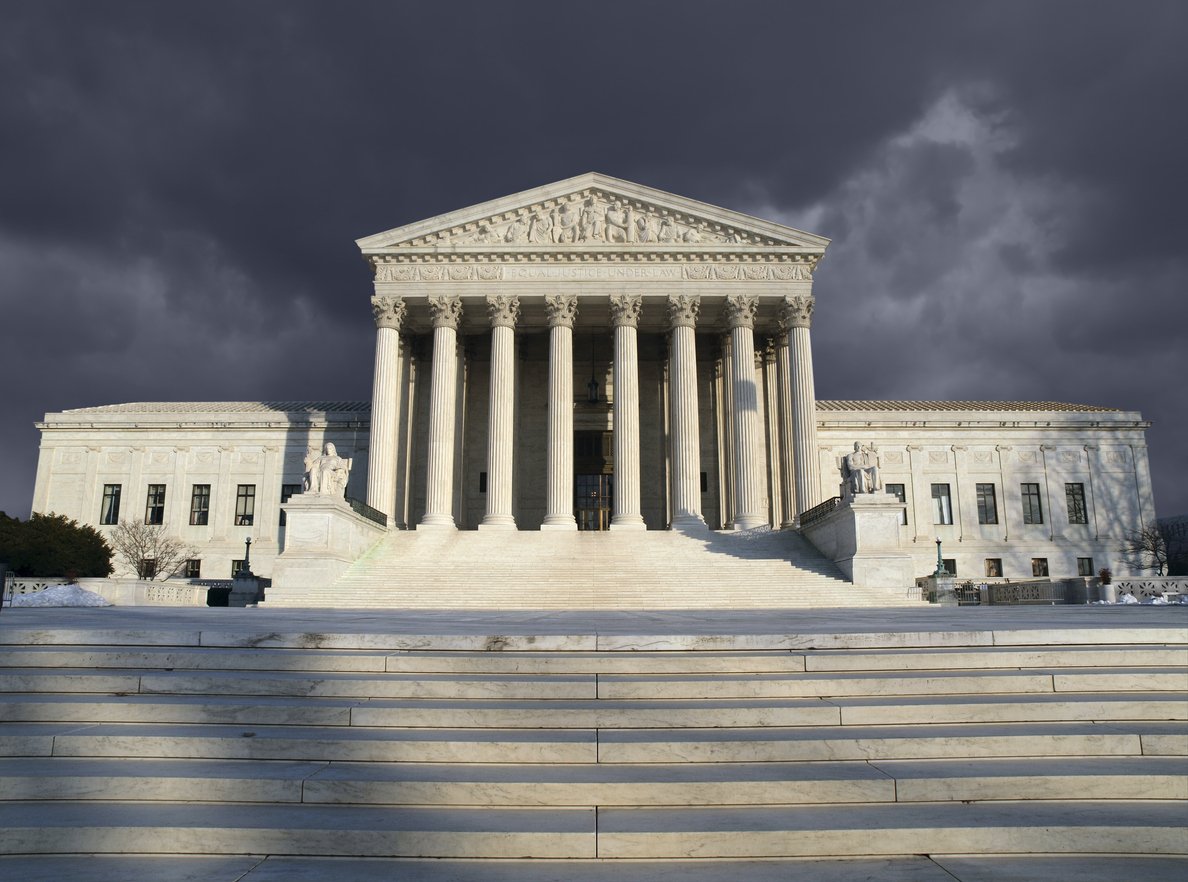Opinion: The Supreme Court Misses its Chance to Do Right
September 01, 2022
As seen on The DI Wire
In 1937, U.S. Supreme Court Justice, Benjamin Cardozo, proclaimed in Palko v. Connecticut, “Freedom of expression is the matrix, the indispensable condition, of nearly every other form of freedom.” Freedom of expression is comprised of the set of guarantees stated in the First Amendment, a group which includes freedom of speech.
In a quote attributed to Thomas Jefferson, he said, “No government ought to be without censors…” Our Founding Fathers had the foresight to establish this matrix of freedom, not only so that we could speak freely amongst each other, but also so that we might have the ability to speak out against any tyrannical or excessive actions of our own government.
Recently, we discussed the SEC’s limitation of this freedom of speech through its use of no-deny consent agreements–or, as we called them, gag orders—in their civil enforcement actions. Since that article, this policy has come under fire, and some high-profile names have appealed to the Supreme Court. The Supreme Court, with its response, has missed an opportunity to repair this un-American practice.
A gag order is most often issued by a judge in an effort to ensure a fair trial and is rarely ordered outside the courtroom, unless you come into contact with the Securities and Exchange Commission.
According to an article in The New York Times, since the 1970’s, the SEC has routinely insisted that defendants who settle their cases neither confirm nor deny any wrongdoing. This is significant because according to FinanceFeeds.com, 96 percent of all SEC cases are settled before trial. This infringement of our First Amendment right was recently brought to the forefront again by former Xerox executive Barry Romeril.
In 2003, Romeril and five other executives agreed to pay $22 million to settle SEC fraud allegations in connection with using unapproved accounting devices in order to accelerate Xerox’s revenue and pre-tax earnings. Part of the settlement included an order in which Romeril and the other executives could neither admit nor deny the SEC’s allegations.
In 2019, Romeril asked the U.S. District Court for the Southern District of New York to overturn the gag rule because he wanted to speak out about his case. The district court rejected his challenge. The rejection was upheld in 2021 by a second circuit court panel.
Having been rejected twice, Romeril took the case to the Supreme Court where he argued, according to Reuters, that the gag order was a “sweeping restriction on freedom of speech.”
In an effort to show how widely impactful this infringement is, Mark Cuban and Elon Musk, along with the Investor Choice Advocates Network and others, filed an amicus brief imploring the Supreme Court to hear Romeril’s challenge. Despite this, the Supreme Court refused to hear Romeril’s case, ensuring that the gag order will remain.
The SEC argues that Romeril waived his right to freedom of speech since he entered willingly into the 2003 agreement, but how willingly can one enter the agreement when the alternative is to fight against the SEC and its seemingly endless resources? As we have stated previously, the average cost for organizations to respond to a formal investigation is over $4 million, prior to the filing of any litigation, per a study from the Center for Capital Market Competitiveness.
Freedom of speech is our first and, arguably, most vital right as Americans. When a powerful government agency demands that we do not speak ill of it, this is a dangerous road towards tyranny. Our financial industry is built upon so much disclosure and transparency, and there is no reason why the SEC should be the exception to that rule. In fact, as Musk and Cuban stated in their amicus, according to Reuters, “…Preventing these settling defendants from speaking freely deprives the securities markets of potentially material information and so may harm the very market participants for whose benefit the SEC pursues transparency and disclosure.”
The Supreme Court has let down the American people and missed a chance to right the wrongs of the SEC by refusing to hear Romeril’s case.
In spite of this missed opportunity, the SEC remains under constitutional scrutiny. In the case of SEC v. Novinger, Christopher Novinger and his company, ICAN Investment Group, moved to have their gag order lifted citing, among other reasons, that to enforce the no-deny policy would “harm the public interest in hearing ‘healthy criticism’ of the SEC.”
The Fifth Circuit rejected his appeal, but two of the three judges on the panel stated that they may strike down similar agreements in the future, if the conditions were right. Judges Edith H. Jones and Kyle Duncan criticized the gag order policy as, according to the New York Law Journal, requiring defendants to “’[h]old your tongue and don’t say anything truthful –ever’—or get bankrupted by having to continue litigating with the SEC.”
This is at least a step in the right direction towards reforming the SEC and its hypocritical and overreaching policies.
What are your thoughts on the Supreme Court’s missed opportunities? Do you think that it will eventually make things right and remove the SEC’s gag orders? Please post your comment on this blog or email me at Publius.Connect@gmail.com and let me know. Let’s continue to work together to create a commission which truly protects investors and those of us who work in the financial industry.

